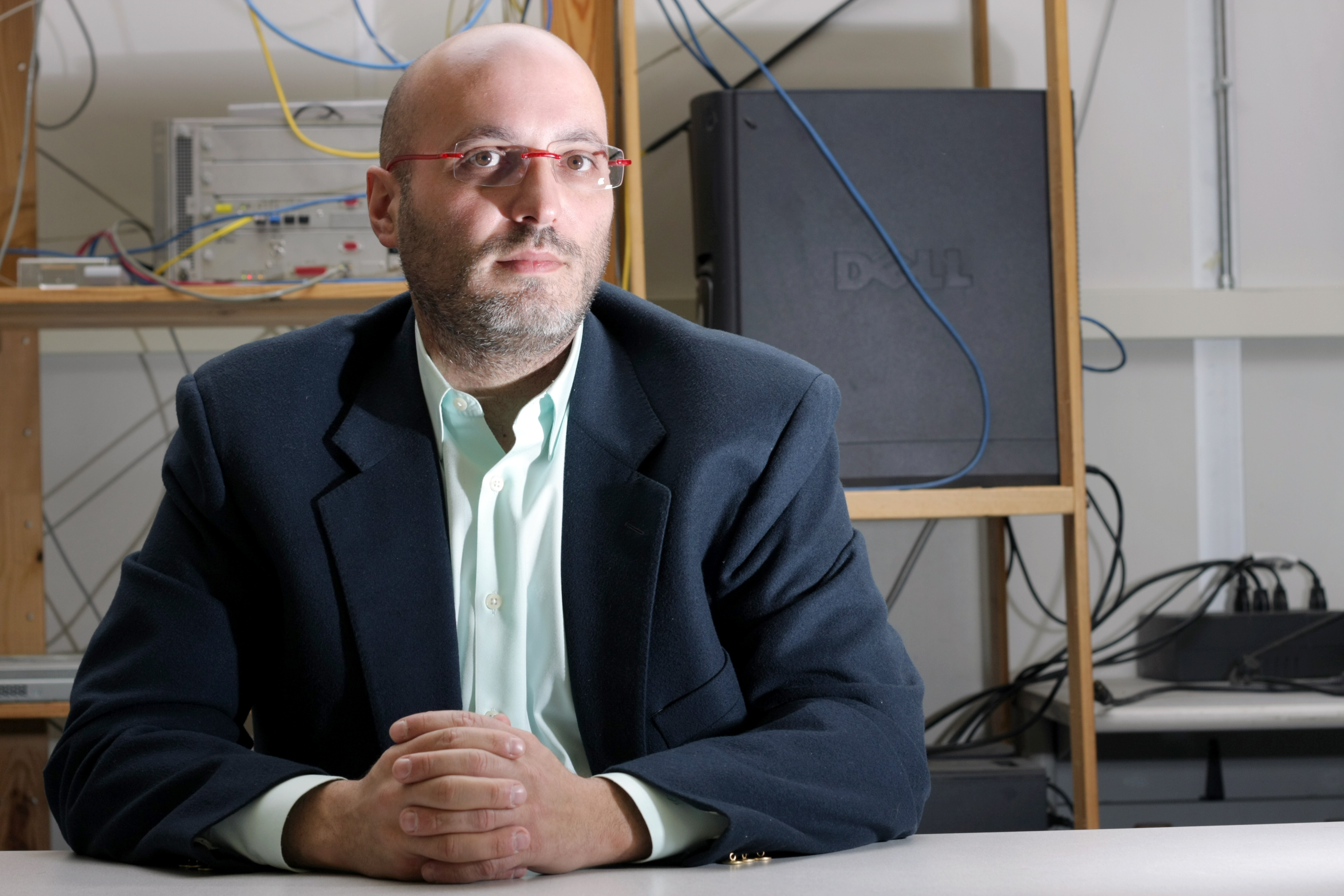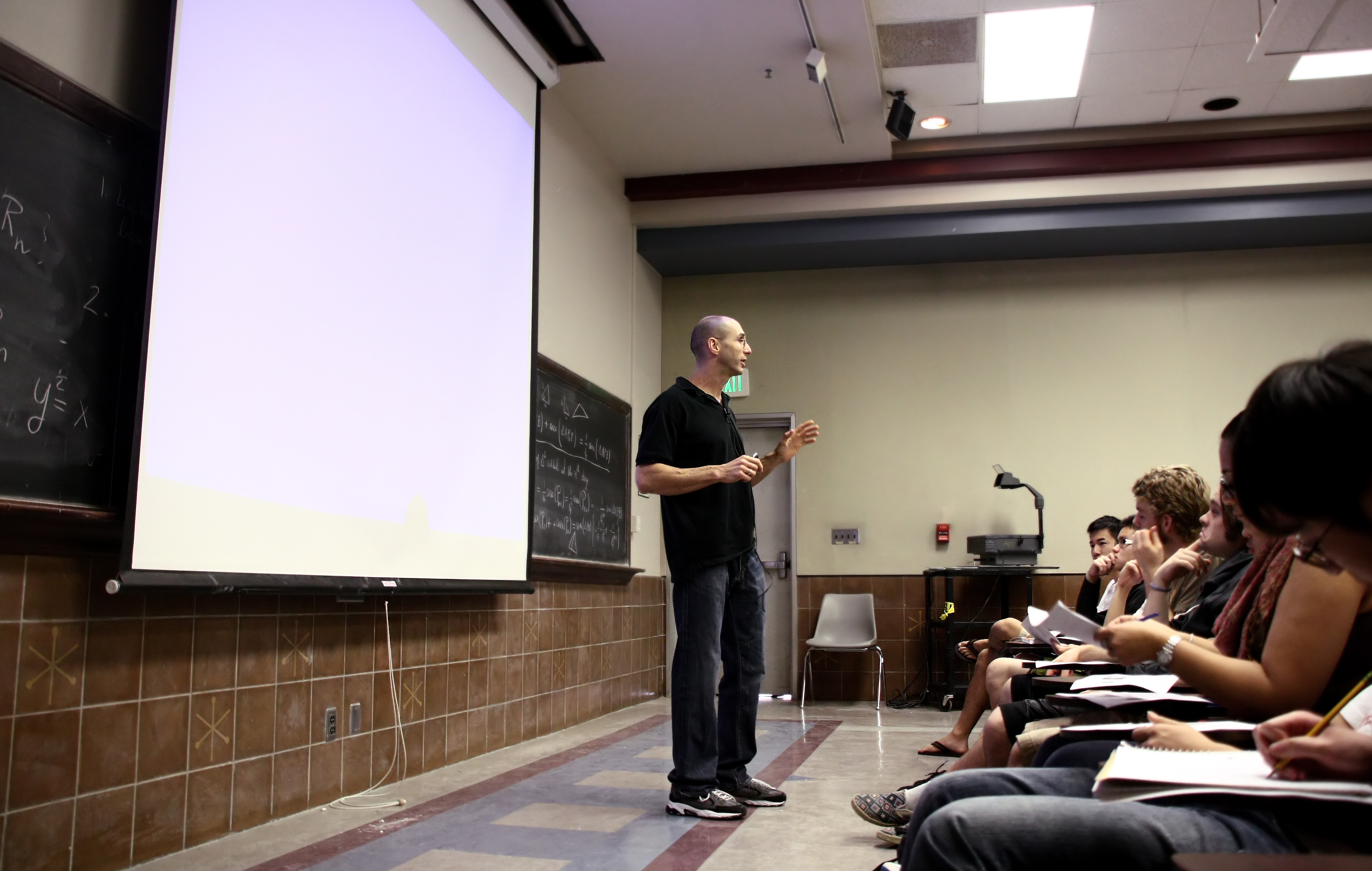
Computer science Professor Giovanni Pau decided to teach without a salary after the department was forced to make cuts. He agreed to continue teaching because of the rewarding experiences he has gained from it. Pau is dependent on his own grant for funding.
One academic department at UCLA has found an unusual luxury to help it weather budget cuts: professors teaching for free.
For the past two years, Carey Nachenberg and Giovanni Pau of the computer science department have been teaching one class a year without salary.
The two arrived at UCLA under very different circumstances. Nachenberg, an Angelino from birth, attended UCLA from 1989 to 1995. During this time, he excelled as a student and became very active in his department, participating in engineering competitions and even setting up some of his own. He became a department scholar, which allowed him to receive both his undergraduate and master’s degree concurrently.
During his first year, Nachenberg landed an internship with Peter Norton Computing, which later became the computer security company Symantec. He maintained his internship throughout his college career and began to work for the company after graduating from UCLA.
In 2001 he began teaching undergraduate classes at UCLA as an outside lecturer, while continuing his work at Symantec. He has patented 49 inventions, most of them involving computer security, software updating and e-mail security.
Pau followed a different path to the university. He first came to the campus as an exchange student while doing his doctorate work with the University of Bologna in Italy. But the research he worked on interested him so much that he turned down a faculty position in Italy to work at UCLA as a research scientist in 2003.
“My job is a research career. The main thing I work on is research, but I like teaching because I get to meet bright young men and women,” Pau said.
In 2004, Pau began teaching a class with colleague Mario Gerla, one of the senior professors in the department, and has been teaching on and off since then as much as his research allows.
Two years ago, budget cuts forced the computer science department to readjust its finances by cutting some outside lecturers, such as Nachenberg.
When David Smallberg, who teaches Computer Science 32 with Nachenberg, told him there was no money available for him that quarter, Nachenberg decided to teach for free.
Nachenberg, who had already risen to the prestigious position of vice president fellow at Symantec, earned enough money that he had already been donating most of his UCLA paycheck to charities and to scholarships for UCLA students.
“I love teaching ““ it’s great to interact with students and teach them computer science,” Nachenberg said. “I have a real passion for this, and I like passing on my knowledge to my students.”
For both Pau and Nachenberg, teaching is a rewarding experience.
“For me, teaching is like breathing new air,” Pau said. “As a researcher, you become so focused in your work that you become isolated from the world, but as a teacher, you learn from students and reconnect.”
Although Pau is not an outside lecturer, he also agreed to teach free of salary and is entirely dependent on his own grant for funding.
“I decided to do it because it helps out the department, and (the department) appreciates that, but also because I learn different things from my students, from human behavior to different technical things that apply to my work, which is very rewarding,” Pau said.
For Nachenberg, one of the rewards of the job is that some of his former students end up working with him at Symantec through internships that he offers to his class.
Richard Muntz, professor of computer science and undergraduate vice chair for the department, said Pau’s class, as an elective, is especially helpful to keep the diversity of the department intact because it offers students a different type of class that lets students build their own programs.
Nachenberg’s introduction to computer science class, which is a requirement, allows more people to take that course with a good student-to-teacher ratio, Smallberg said.
“Right now, we teach three lectures of that class. If he didn’t teach, we’d have to move to only two sections with a larger number of people, which would affect the quality of the teacher-to-student ratio,” Smallberg said.
Moreover, Pau and Nachenberg are among the most popular professors in the department, Muntz said.
Nachenberg’s antics ““ giving out candy as a reward for answering questions, including jokes in his lectures and blasting sleeping students with an air cannon ““ are all part of a plan to keep students interested in his class.
At the end of the year, he also revamps the most difficult lectures of the year and writes completely new lectures from scratch in an attempt to make the material easier to understand.
“He’s very easygoing and entertaining,” Smallberg said. “Computer Science 32 is a difficult subject, and students usually rank professors harder on difficult classes, but he keeps people focused and his lectures are very entertaining.”
Pau’s class, in which groups of students develop computer programs from scratch, is also among the most popular electives, Muntz said.
Pau tries to keep the class interesting by allowing students to develop new programs for mobile platforms like the Motorola Droid and the Apple iPhone. Pau also uses new technologies, like Skype, to make himself more accessible to his students.
“Just because these guys teach for free, people shouldn’t think that they’re not qualified,” Muntz said. “They are some of the best teachers in the department.”
